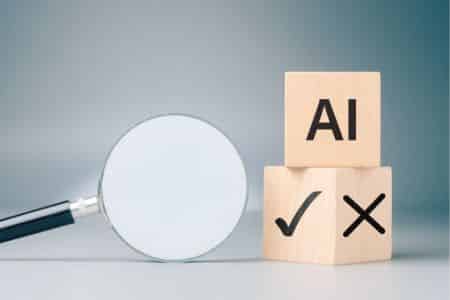The pressure to market smarter, not just harder, is stronger than ever. Business leaders and marketing teams are increasingly asking a critical question: Should we rely on AI vs. marketing agencies to drive growth?
The rise of artificial intelligence in marketing has opened the door to faster content creation, automated campaigns, and real-time insights. Meanwhile, marketing agencies offer strategic depth, creative direction, and expertise across multiple channels. Choosing between them isn’t always straightforward, and often, the best solution isn’t “either/or” but “when and how.”
In this guide, we’ll compare the core strengths of AI and marketing agencies in SEO, content, PPC, automation, and more. Whether you’re a startup looking for speed or an established company scaling your strategy, this post will help you decide how to get the most from your marketing investment.
AI and Marketing: Why the Debate Matters Now
The debate between AI and marketing agencies isn’t just a trend; it reflects real pressure on teams to achieve more with fewer resources. Marketing budgets are tightening, expectations for return on investment (ROI) are rising, and the pace of digital change is accelerating. That’s why conversations around AI and marketing have moved from curiosity to necessity.
Generative AI tools like ChatGPT, Jasper, and Midjourney have demonstrated the potential of automation to streamline marketing operations, from creating blog posts to crafting ad copy and design templates. At the same time, businesses continue to rely on marketing agencies to develop cohesive brand strategies, manage complex campaigns, and navigate evolving search and social algorithms.
As digital marketing and AI continue to evolve, business leaders are compelled to reassess their approach. Is it time to go all-in on AI? Are agencies still worth the investment? Or is the smartest path a hybrid of both?
In the sections ahead, we’ll explore exactly what each option offers and how to choose the right fit for your business goals.
The Strengths of AI in Marketing

Artificial intelligence (AI) has rapidly become a powerful force in the marketing world, and for good reason. When implemented effectively, it enables teams to scale more quickly, operate more efficiently, and make informed decisions supported by data. The benefits of AI and marketing extend far beyond novelty for businesses seeking to enhance efficiency and productivity.
Here are some of AI’s most significant strengths in modern marketing:
- Speed and Scale: AI tools can generate blog posts, social media content, product descriptions, and even ad copy in seconds, helping small businesses like home services, eCommerce stores, and law firms scale content output without increasing headcount.
- Personalization at Scale: With machine learning, AI can analyze user behavior in real time and help customize messaging by audience segment, behavior, or stage in the funnel, making it easier to deliver targeted, automated campaigns that match user intent and behavior patterns.
- 24/7 Efficiency: AI doesn’t sleep. From chatbots to automated email sequences, you can keep nurturing leads and responding to inquiries outside office hours.
- Data-Driven Insights: Tools like predictive analytics and AI-based testing platforms help marketers understand what’s working, and what’s not, at a pace that manual analysis simply can’t match.
- Cost-Effectiveness: AI can reduce the need for multiple hires or expensive outsourcing by handling routine tasks automatically for small teams.
Whether writing metadata, segmenting audiences, or optimizing ad bids, AI is helping marketers move faster and make smarter decisions with fewer resources.
Where Marketing Agencies Still Win
While AI tools offer speed and automation, human expertise remains essential in certain areas, particularly in strategy, creativity, and long-term brand growth. This is where marketing agencies continue to shine.
Here’s what agencies bring to the table that AI can’t fully replicate:
- Strategic Insight: Marketing agencies offer comprehensive, data-driven strategies informed by market research, audience behavior, and business objectives, rather than relying solely on keyword inputs or algorithmic prompts.
- Creative Execution: Great storytelling, compelling visuals, and emotionally resonant campaigns require a human touch. Agencies combine designers, writers, and strategists to develop messaging that connects on a deeper level.
- Cross-Channel Expertise: From SEO and PPC to email and social, agencies know how to coordinate campaigns across platforms and ensure that messaging is consistent, timely, and optimized for each channel.
- Adaptability and Nuance: AI can struggle with context, tone, and complex decision-making. Agencies excel at interpreting market changes, responding to real-time feedback, and adjusting strategies as needed.
- Relationship Management: Agencies often serve as extensions of your team, offering accountability, ongoing communication, and access to a diverse pool of marketing specialists who understand your business.
In short, agencies remain invaluable for businesses that want to scale sustainably, protect their brand reputation, and invest in marketing that’s both creative and strategic, not just fast and efficient.
AI vs. Marketing Agencies: Key Comparison Areas
To help you decide which approach best fits your goals, here’s a side-by-side breakdown of how AI tools and marketing agencies stack up across core marketing functions:
Content Creation
- AI: Fast, scalable content generation for blogs, product pages, and social posts. Best for volume and idea generation.
- Agency: Human-written with or without AI assistance, brand-aligned content marketing with narrative structure, audience targeting, and persuasive tone.
SEO
- AI: Quickly generates scalable content for blogs, product descriptions, and social media posts. Best suited for producing high volumes of content and sparking new ideas.
- Agency: Develops brand-aligned, human-written content, with or without AI support, that follows a straightforward narrative, targets the right audience, and uses persuasive, on-brand language.
PPC Advertising
- AI: Manages bidding, adjusts budgets, and runs A/B tests automatically. Effective for high-speed, data-driven ad optimization.
- Agency: Builds complete PPC campaigns, writes compelling ad copy, and aligns ad strategy with broader marketing objectives and audience intent.
Email Marketing
- AI: AI can automatically segment lists, determine optimal send times, and generate dynamic content, boosting engagement as outlined in our guide on nurturing leads through marketing automation.
- Agency: Designs visually appealing, branded emails and develops targeted sequences to move leads through the funnel and improve conversions.
Analytics and Reporting
- AI: Automatically segments email lists, optimizes send times, and generates dynamic content based on user behavior.
- Agency: Designs visually appealing, branded emails and develops targeted sequences to move leads through the funnel and improve conversions.
Ultimately, AI shines in automation and scale, while agencies excel in strategy and creativity. For many businesses, combining both offers the best of both worlds.
When to Use AI, Hire an Agency, Or Both
The smartest approach isn’t always picking sides; it’s knowing when to use AI, lean on agency expertise, and when a blended strategy drives the most value. Your business stage, budget, and in-house skills should all guide this decision.
Use AI If You:
- Need to create content or ads quickly on a tight budget.
- If you’re automating repetitive email campaigns or lead nurturing, an AI-powered system can do the work and drive better engagement than manual setups.
- Have a small in-house team that needs help scaling output efficiently.
- Testing early-stage ideas or campaigns that don’t yet require a deep strategy.
Hire a Marketing Agency If You:
- Need help crafting a long-term strategy and brand positioning.
- Want experienced professionals managing cross-channel campaigns.
- When you are launching a new product, rebranding, or entering a new market.
- Help with technical SEO, CRO, paid media, or ongoing consulting is required.
Use Both If You:
- Want to scale your marketing without overloading internal teams?
- They already use AI for speed but need human insight for messaging or creative.
- Have growth goals that require both automation and custom strategy.
- Need cost-efficiency without sacrificing quality or vision.
In many cases, the most scalable solution is to combine AI and marketing. Automate where it saves time, delegate where it adds value.
Can AI Replace Marketing Agencies? Not Exactly.
It’s tempting to think that AI could eventually replace agencies entirely, but the reality is more complex. While AI tools have transformed how we execute marketing tasks, they still lack the strategic nuance, creativity, and adaptability that human experts bring. Additionally, many agencies have begun to adopt AI, and those that have already done so are building expertise in this area.
Why AI Falls Short on Its Own:
- Context matters: AI often struggles to interpret shifting customer behavior, cultural trends, or tone-of-voice subtleties that define effective campaigns.
- It can’t lead strategy: AI can optimize what exists, but it can’t invent a brand voice, architect a funnel from scratch, or develop integrated growth plans. AI can affect SEO tasks by streamlining them, but it still falls short when it comes to creative thinking, tone, and long-term strategy.
- Full automation has risks: Without oversight, AI can produce off-brand content, SEO spam, or ad copy that violates compliance requirements or audience expectations.
That’s why many digital marketing and AI success stories involve hybrid teams, where AI handles the heavy lifting and humans guide direction.
AI doesn’t threaten forward-thinking agencies; they’re integrating it. They utilize AI to save time on tasks such as keyword research or first-draft copy, allowing them to focus more on strategy, creative thinking, and long-term planning.
How Oyova Blends Human Expertise and AI to Drive Results

At Oyova, we believe the future of marketing isn’t human vs. machine, it’s human plus machine. Our team combines strategic expertise with innovative AI tools to deliver faster, more effective outcomes without compromising quality.
Here’s how we help clients scale smarter:
- Strategic Planning First: We lead with business goals, not just tactics. Our team maps out tailored strategies across SEO, PPC, content, and automation.
- AI-Assisted Efficiency: We utilize the best AI and automation tools where they have the most impact, from keyword research and A/B testing to content ideation and performance forecasting, allowing your team to move faster without losing focus on strategy.
- Human-Crafted Execution: From messaging and creative to campaign management, our specialists ensure every output reflects your brand and drives results.
- Cross-Channel Integration: Whether it’s optimizing for search, running ads, or nurturing leads through email, we align efforts across platforms for maximum ROI.
The result? Clients gain the speed and scale of AI, combined with the trust, consistency, and insight that only experienced marketers can deliver.
If you’re ready to grow with a more innovative, balanced approach, Oyova can help you build a marketing system that adapts to change and accelerates your success. Contact us today!
www.oyova.com (Article Sourced Website)
#Marketing #Agencies #Growing #Business
